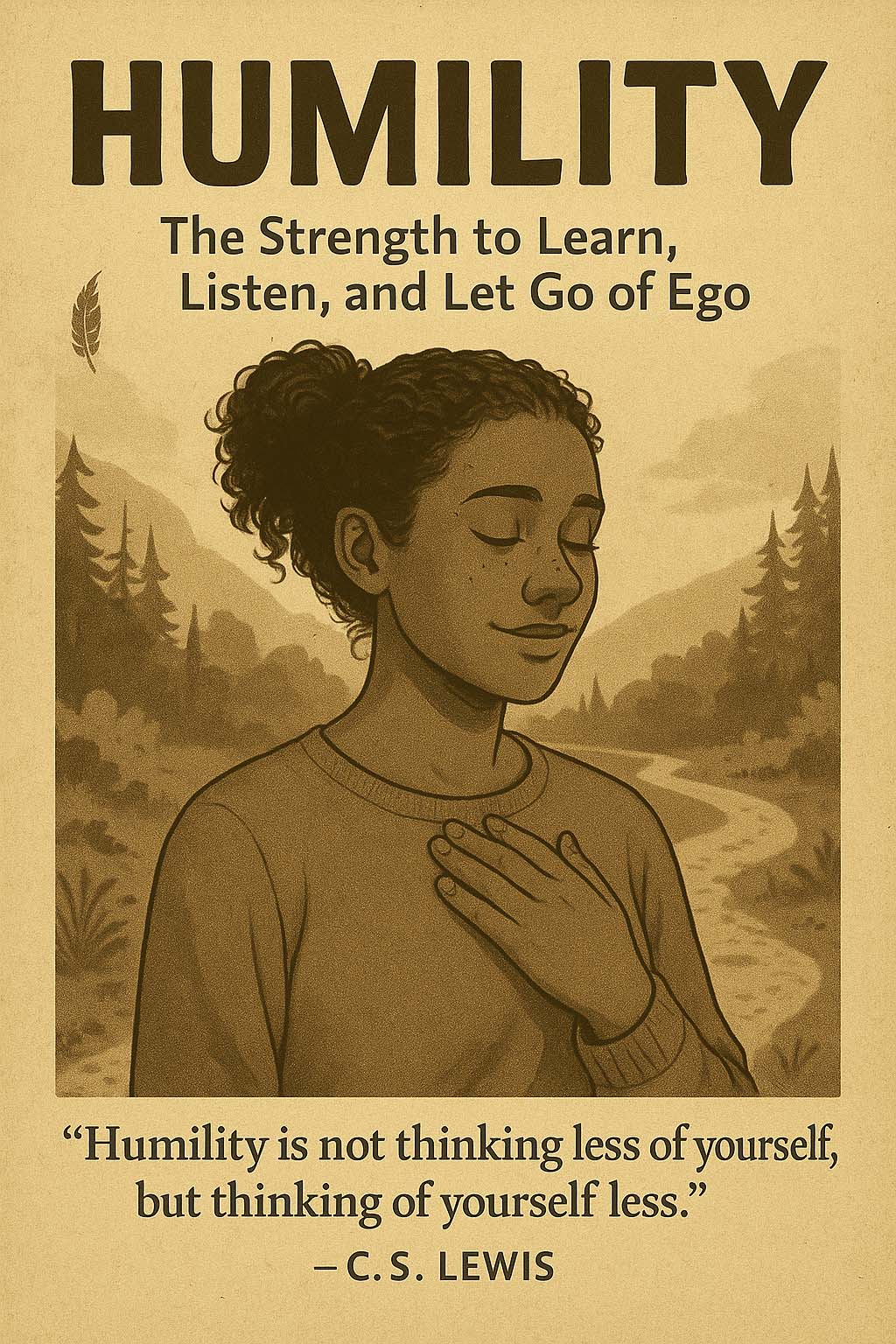
🪶 HUMILITY
“Humility is not thinking less of yourself, but thinking of yourself less.” – C.S. Lewis
Humility is the soft strength that allows you to grow without needing to prove, pretend, or protect. In the ADHD terrain—where so much energy can go into defending our worth, masking our challenges, or overcompensating for perceived flaws—humility creates space. It lets us say, “I don’t know. I need help. I can still learn.” And that’s powerful.
Humility doesn’t mean self-deprecation. It’s not about shrinking. It’s about staying teachable. Staying curious. Recognising that our view isn’t the only one, and that even our best efforts sometimes miss the mark. For ADHDers, who may struggle with impulsivity, emotional reactivity, or black-and-white thinking, humility brings flexibility.
It also heals relationships. When we practice humility, we can repair ruptures, admit when our intentions didn’t match our impact, and truly listen to others—without making it all about us. We stop using perfection as a shield and start embracing feedback as part of the trail.
And humility lets us meet our limitations with grace, not shame. It says, “I can be enough and still have room to grow.” It quiets the ego—not to silence us, but to make room for something more enduring: connection, integrity, and learning.
🧭 The HOPE Trail Map
- Helps or Harms: Am I acting from self-awareness—or from fear of being wrong?
- Own My Values: I want to be someone who stays open to growth, not just focused on being right.
- People and Pursuits: Who challenges me kindly? What practices help me stay grounded in shared learning, not self-image?
- Enact and Evaluate: Today, I’ll pause before reacting—and consider what I might still be learning.
⚠️ Trail Challenges
- Rejection Sensitivity may make feedback feel like threat.
- Masking or overachievement can crowd out opportunities for humility.
- ADHDers may struggle to balance confidence and teachability.
🪧 Trail Markers: Small Steps Toward Humility
- Say: “I don’t know—but I’d like to understand.”
- Reflect on a time you changed your mind—and why that mattered.
- Thank someone for feedback, even if it stung.
🔥 Campfire Questions for Reflection
- What does healthy humility look like for me—not self-erasure, but self-honesty?
- Where might I benefit from listening more and defending less?
- How does humility help me stay connected to others, even when I feel unsure?
Humility isn’t about making yourself smaller. It’s about making room—for truth, for others, and for the person you’re still becoming.
